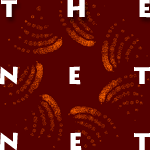In Hystories: Hysterical Epidemics and Modern Media, Elaine Showalter argues that several current phenomena meet the criteria for hysterical epidemics. Widely publicized, and with visible authority figures to lend them validity, these phenomena connect to several rich traditions, such as fin-de-siècle angst and the marginalizing, feminine imagery of hysteria as articulated (and established) by early psychoanalysts. Hysterical epidemics rely on media dissemination both for the consistency of the symptoms displayed by their sufferers and, at least to some extent, for the recruitment of sufferers. Enter the Internet.
So where on the Web is this stuff? Support groups, news stories, and opinions are close at hand. Thousands of sites mention chronic fatigue syndrome, Gulf War syndrome, recovered memories, multiple personality, satanic ritual abuse, and aliens. There are, however, some variations in the ratios of perspectives. Some phenomena attract more mainstream attention, other attract more hostile critiques. And anything to do with UFOs attracts not only a great deal of attention but a kind of loving critique and adaptation as well.
Chronic fatigue syndrome revolves around finding a "medical" or "acceptable" explanation, while Gulf War syndrome has deeper implications for trust, particularly trust of government. Recovered memory seems to lend itself to merchandising, and multiple personality seems to assign more latitude for comfort with the diagnosis, perhaps because people are intrigued by role-playing and also perfectly aware that most people behave differently in different situations. Satanic ritual abuse is a familiar accusation in a Christian culture with a history of witch-hunting. And alien abduction is a brilliant fusion of a veritable holy grail of abuse experience with a search for faith in an increasingly technology-dominated world.
All of them touch on the application of the scientific method in some way. Chronic fatigue syndrome and Gulf War syndrome tend to be argued in the context of medicine, and mainstream claims that there is no infectious agent or toxin involved does not blunt the explicit goal of practitioners to acknowledge that their patients are suffering and to work with them to effect clinical improvement. The other phenomena discussed in Hystories more readily lend themselves to larger debates about "junk science" and "conspiracy", particularly satanic ritual abuse and alien abduction.
Showalter points to a persistent unwillingness to acknowledge psychogenic suffering and symptoms as real, a resistance she attributes to the feminine (and therefore devalued) identification of hysteria in the 19th century. Even shell-shock, once a respectable way for men to experience debilitating symptoms of stress, has receded from the Gulf War syndrome coverage. But are we as a society really unwilling to admit that exhaustion and stress can cause real suffering? Are we really so intent on medicalizing our complaints that we are unwilling to admit overload and even modify our behaviors?
A growing collection of books about mass media emphasize its capacity to overwhelm and its tendency to reflect interests that don't seem to serve the public. Although the Internet creates tremendous opportunities for dissemination of the information that, among other things, helps to perpetuate hysterical epidemics, this ease of communication has come with a growing anxiety about "becoming digital". Among these ideas are arguments that our technology's ability to produce and deliver information has outpaced our human ability to process it. In addition, more writers are openly criticizing the values and motivations of media content in arguments that don't simply create new conspiracy theories but actually ask some very hard questions about what people can know and how they can know it. Resistance and skepticism are the words of the day -- when the subject is electronic communication.
Showalter is a professor of literature as well as a medical historian, and throughout her book, the rich narratives of hysteria are evident. Freud believed that hysterical patients needed to achieve catharsis through acceptance of a narrative that acknowledged repressed, traumatic memories. In modern hysterical epidemics, the retelling of such stories is still a powerful aspect, and all the phenomena discussed Hystories rely to some extent on quests for validation as a path to relief. Showalter suggests that this validation could appropriately come from an acknowledgment of the reality of psychogenic disorders. Can anxiety about the "virtual life" help us achieve that acknowledgment? Or is media fatigue the hysteria of the 21st century?
All of these books are available from Amazon.com.
- Data
Smog: Surviving the Information Glut, by David Shenk. "It is said
that information wants to be free, but most days on the net, don't you
feel that all it wants to do is be in your face every last minute?"
- Minutes
of the Lead Pencil Club: Pulling the Plug on the Electronic Revolution,
the new Luddism. Essays by a wide range of authors, including Clifford
Stoll and Russell Baker.
- Breaking
the News: How the Media Undermines American Democracy, by James
Fallows. "Fallows details the ways in which the current style of news
coverage engenders a sense of futility in the American public about
our ability to influence our society."
- Necessary
Illusions : Thought Control in Democratic Societies, by Noam Chomsky.
About mass media as profit- and corporate-motivated arbiters of mass
opinion.
- Resisting
the Virtual Life: The Culture and Politics of Information, edited
by James Brook and Iain A. Boal. Discusses new video and computer technologies
and their effects on the arts, communication, and social conditions.



